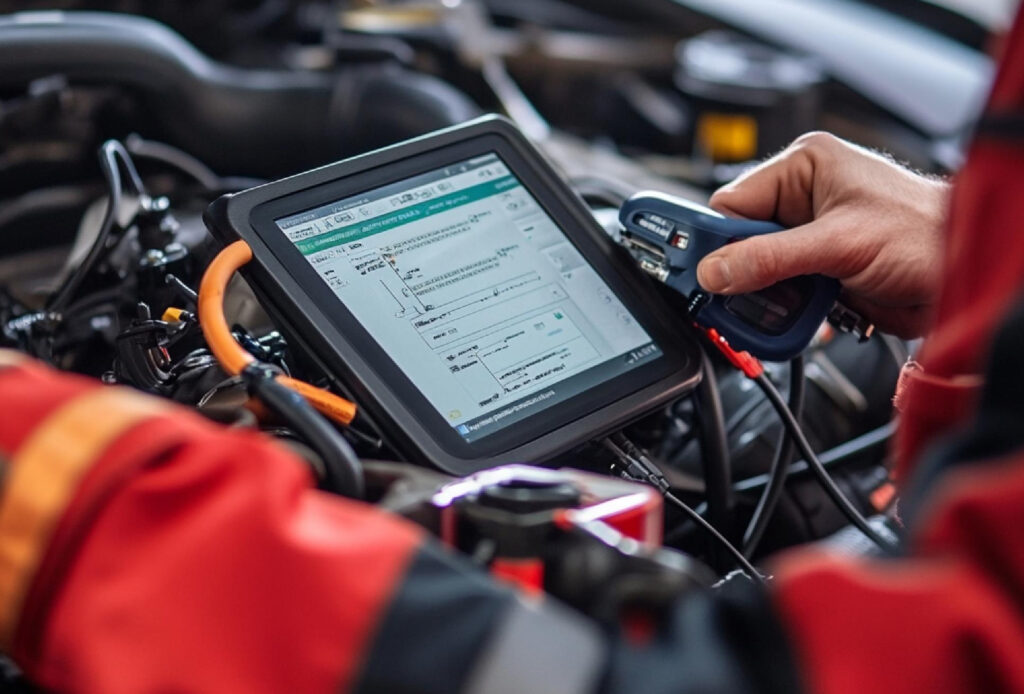Engine diagnostics is the process of using specialised equipment to identify issues with your car engine and other related systems. Technicians use an onboard diagnostic tool to access trouble codes generated by the car’s computer system, which helps pinpoint problems in various systems such as the engine, gearbox, exhaust, and more.
How do I know if my vehicle needs an engine diagnostic?
If your vehicle’s Engine Management Light (EML) or other warning lights appear on the dashboard, it’s a strong indication that your car needs an engine diagnostic. Other signs may include unusual engine sounds, poor performance, increased fuel consumption, or if the vehicle is stalling or misfiring.
What can engine diagnostics detect?
Engine diagnostics can identify a wide range of issues including:
- Faulty oxygen sensors
- Problems with the fuel injection system
- Misfires or problems with spark plugs
- Exhaust system issues
- Emission control problems
- Gearbox-related errors
- Sensor malfunctions
How long does an engine diagnostic take?
A basic diagnostic test typically takes around 30 minutes to an hour. However, if further investigation or manual testing is needed, it may take longer depending on the complexity of the issue.
Do I need to get a diagnostic every time the Engine Management Light turns on?
Yes, it’s important to address the Check Engine Light when it appears. While some issues may be minor, the warning can also indicate serious problems that, if ignored, can unfortunately lead to more costly repairs.
Will engine diagnostics tell me exactly what needs to be fixed?
Engine diagnostics can provide detailed information about which part or system is malfunctioning. However, it may not always provide the exact cause of the problem, so further investigation may be required to determine the root cause.
Does my vehicle’s make and model affect the diagnostic process?
Most modern vehicles have standard diagnostic ports that support the OBD-II system, making the process similar across different makes and models. However, some high-end or specialised vehicles may require advanced diagnostic tools that only certain mechanics or dealers possess. If this is the case, we will let you know.


